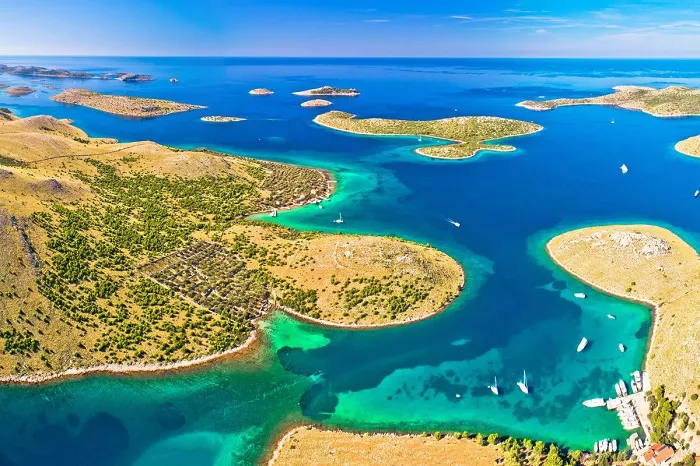KORNATI NATIONAL PARK, CROATIA – A surge in the population of golden jackals within the Kornati National Park is threatening the centuries-old tradition of free-range sheep farming in the Zadar archipelago. The animals, which swam to the park from nearby Dugi Otok around four years ago, have since bred rapidly, posing a serious ecological and economic threat.
Golden jackals, while beneficial for controlling rodent populations, have become a significant menace to livestock. Farmers on the Kornati islands, particularly those raising sheep, report increasing attacks on their herds. Local authorities, alongside national officials, have launched a campaign to manage the growing jackal presence, but frustrations continue to mount among residents.
“Sheep are an iconic part of the Kornati islands, but their numbers have plummeted since the arrival of jackals,” said Agata Kovačev, biologist and manager at Kornati National Park. “Beyond livestock loss, the islands’ biodiversity is now under serious threat.”
One affected farmer, Jakov Šikić, has seen his flock reduced from 200 to just 30 animals. “Five of my lambs were slaughtered in a single morning,” Šikić told Croatian broadcaster HRT. Attempts to deter predators using protective Turkish Kangal dogs were abandoned due to safety concerns related to tourism.
Minister of Environmental Protection and Green Transition, Marija Vučković, visited the islands in response to the escalating crisis. “We are exploring ways to support herd renewal, maintain traditional farming, and assist with operational costs, including salaries,” the minister said.
To date, approximately 160 jackals have been culled by trained marksmen. However, their high reproductive rate and ample food sources make eradication challenging. The National Park has committed to ongoing monitoring and the implementation of humane control measures.
“The risk isn’t just to sheep farming,” added Kovačev. “As more farmers abandon their flocks, the broader ecosystem and cultural heritage of the Kornati islands hang in the balance.”
Local residents and conservationists alike stress that preserving traditional sheep farming is vital—not only for the region’s biodiversity but also for the survival of the island communities who have depended on it for generations.


